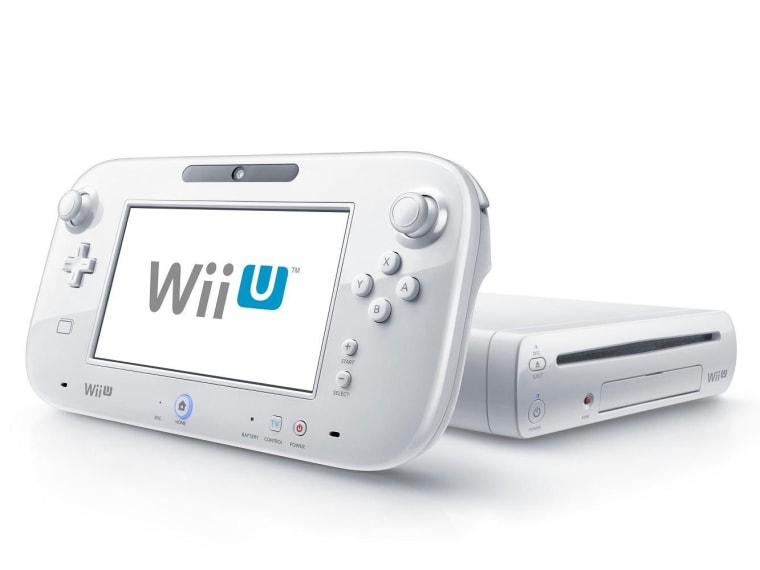To many a "Super Mario Bros." fan's dismay, Nintendo's new Wii U console hasn't made a strong impression — either commercially or critically — since it debuted last November. But despite weak sales and a dearth of third-party games to support the device, the Japanese gaming giant has been reluctant to own up to any possible mistakes it made in bringing the console to market, so much so that Wedbush Securities analyst Michael Pachter told NBC News in April that Nintendo's president and CEO Satoru Iwata needed a "humbling moment" before he could his company back on track.
All the sound and fury that erupted last week at the Electronic Entertainment Expo (E3) in Los Angeles over Microsoft and Sony's next-generation consoles may have finally given Iwata that moment.
Speaking in a candid interview with CNBC last week, the long-time CEO of Nintendo admitted that the Wii U's weak sales so far are a direct result of his company's weak marketing and a corresponding failure to offer gamers compelling software for the console.
"We are to blame," Iwata said. "We relaxed our (marketing) efforts, so the consumers today still cannot understand what's so good and unique about the Wii U. Because we're always trying to be unique, it takes some energies on our side to (help) people understand the real attractions about whatever we are doing."
Iwata said that Nintendo has been "unsuccessful in coming up with one single (piece of) software with which people can understand, ‘OK, this is really different.'"
While the Wii U has shown off a number of impressive, if somewhat predictable, array of new titles based on iconic franchises like "The Legend of Zelda" and "Super Mario Bros.," analysts and industry commentators like Pachter have repeatedly emphasized that these games have not proved substantial enough to even inspire the legions of long-time Nintendo fans to buy the new device.
Iwata told CNBC that, so far, the Wii U hasn't given prospective users a single game like the original Wii's "Wii Sports" that could vindicate its more ambitious features, including a touchscreen GamePad controller and dual-screen possibilities.
Humbling or not, Iwata's admission could be seen as a roundabout way of reasoning his way out of dropping the Wii U's price, however. Iwata said that Nintendo now plans to revive Wii U sales and subsequently attract renewed third-party support by fleshing out its own line-up of games in the coming year — an approach he insisted is more reasonable than simply cutting its $250 starting price.
"Because from the very beginning we came up with a very aggressive price point. We do not think [a price cut] is a very easy option to take," Iwata said.
Given the fact that the Xbox One and PlayStation 4 will debut for $499 and $399 respectively, the Wii U does remain the more frugal option for prospective console gamers. But is a continuing focus on first-party titles enough to carry Nintendo through an increasingly competitive market as both of these rival consoles make their way to customers in the coming holiday season?
A number of high-profile third party developers such as Electronic Arts have already admitted that the Wii U basically has been placed on the backburner for the remainder of 2013, and all of the major E3 press conference from publishers like EA, Ubisoft, and Activision barely mentioned Nintendo's console.
Yannick LeJacq is a contributing writer for NBC News who has also covered technology and games for Kill Screen, The Wall Street Journal and The Atlantic. You can follow him on Twitter at @YannickLeJacq and reach him by email at: ylejacq@gmail.com.
